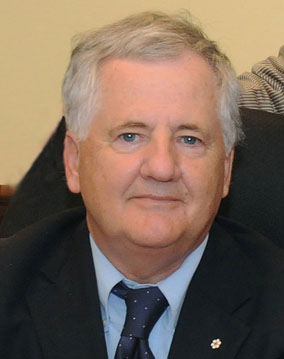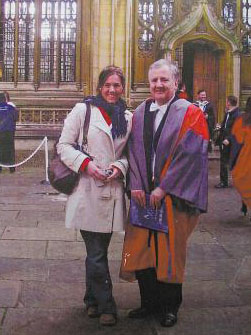In the strange spring of Stephen Harper new voices of region are rising in the east .. true or false?
Apr 8th, 2010 | By Randall White | Category: In Brief
Dr. Donald Savoie, Canadian public policy guru and New Brunswick Acadian: “Ontario has to respect and recognize ... that Canada is not a unitary state ... otherwise it’s going to destroy over time the national unity of this country.”
Ever since the 1980s the modern quest to at last reform The Unreformed Senate of Canada has had its main base in Western Canada (with a brief variation on the theme from Clyde Wells in Newfoundland, in the last days of the Meech Lake Accord).
Now in minority PMÂ Harper’s strange spring of 2010, there seems some slight prospect that if what Mr. Harper himself once aptly called that “relic of the 19th century” is ever going to be brought into the real world today, the ultimate motivation and winning formula will come from the mysterious east (with special reference to Atlantic Canada and Quebec).
The precipitating factor here is NOT the Harper government’s current fourth try “in four years” at winning some kind of parliamentary majority for Senate term limits. But it may or may not be its parallel proposed legislation to give Ontario 18, BC seven, and Alberta five new MP s in the Canadian House of Commons, to more fairly (and democratically) represent the growing populations in these provinces.
Two particular immediate regional objections to this proposed enhanced “representation by population” in the so-called lower house of the Parliament of Canada have especially impressed me. The first is from the eminent New Brunswick political scientist Donald Savoie. Atlantic Canadians, he has urged, “should be very concerned about” giving “Ontario, British Columbia and Alberta 30 more seats in the House of Commons … ‘I think what Ontario has to respect and recognize … is that Canada is not a unitary state … Regions do matter. That was the deal at Confederation’ … Savoie says the Atlantic premiers must advocate for Senate reform or the region will be less able to counter Ontario’s dominance.”
As the eminent Ottawa pundit Jeffrey Simpson has pointed out: “Population is, roughly speaking, the rule of thumb in lower houses in democratic countries.” In “federations” like Canada, on the other hand (that are not what Donald Savoie has called a “unitary state”), the so-called upper house (or Senate – in Canada, and such similar geographically vast federations as Australia and the USA) is meant to give countervailing regional representation to the units that make up the federation (provinces in Canada’s case). A properly reformed Senate of Canada would offset Ontario’s demographic dominance (in some reasonable degree), and give suitable representation in federal institutions to such less populous provinces as New Brunswick.
A related but somewhat different case was raised by Bloc Québécois MP Mme Claude DeBellefeuille, in the Commons last week. The target again was the Harper minority government’s same proposed legislation to give Ontario, British Columbia and Alberta 30 more seats in the lower house. And Mme Debellefeuille fumed: “After recognizing the Quebec nation, the government is now invoking representation by population in order to reduce the political weight of Quebec” in the institutions of the federation. (Of course, you might say, why would the BQ really care about that? But apparently it does, despite M. Duceppe’s current cross-Canada Quebec sovereignty tour. And that has to be judged a good thing.)

Donald Savoie and his daughter Margaux at Oxford College. He “sees a bloated public service in Ottawa ... filled with bureaucrats with no understanding or interest in Canada's regions” (even under minority PM Stephen Harper from Alberta, it seems).
As Jeffrey Simpson has also aptly pointed out: “Population is growing much faster in Ontario, Alberta and British Columbia than elsewhere.” Democracy Canada-wide (one Canadian citizen one vote, etc) means that “they deserve more seats in the House of Commons.” At the same time, on the Quebec understanding of Donald Savoie’s “deal at Confederation” the Canadian federation is also (in Mr. Simpson’s language) “a union of ‘peoples’ or ‘nations,’ within which one, francophone Quebec, should not lose ground.”
Here too, you don’t have to be a political rocket scientist to appreciate that the most logical resolution of this dilemma is some form of unique regional representation for the Quebecois “nation within a united Canada” in a reformed Senate of Canada. And if you combine this with a formula that still protects Atlantic Canada (and Manitoba and Saskatchewan for that matter, along with the three northern territories) from the aggressively growing demographic weight of Ontario, BC, and Alberta (without unreasonably overriding the Canada-wide democracy altogether), you could in principle have a workable policy for reforming the unreformed Senate of Canada at last.

La députée Claude DeBellefeuille et Robert Pilon, du marché IGA Pilon-McKinnon de Salaberry-de-Valleyfield, ont rencontré des jardiniers maraîchers, dont ceux de la ferme Pinsonneault & fils de Saint-Michel.
I can’t resist noting that there has been for some time now a vague example of how such a policy might look, lurking harmlessly in the virtual political reality of the world wide web. See, eg: “Bribe Prince Edward Islanders to reform the Senate, not kill it,” first published in the online edition of the Globe and Mail in the late summer of 2005. (Modesty, false or otherwise, prohibits me from identifying the author.)
This is not of course quite the kind of so-called “Triple E” Senate reform that first surfaced in Alberta a generation ago – and has played such a constructive role in energizing the modern Canadian debate. But “history has many cunning passages,” as the poet has said. The Triple E concept assumes that Canada is essentially the same kind of federation as Australia and the USA. And the plain truth is that this is not exactly true. Alberta today is also a different kind of province than it thought it was in the 1980s – and BC never has felt very comfortable being led by the wild rose. So who knows? An approach to Senate reform that starts in Atlantic Canada and Quebec might finally be what is best suited to our unique northern North American circumstances, in the early 21st century.


